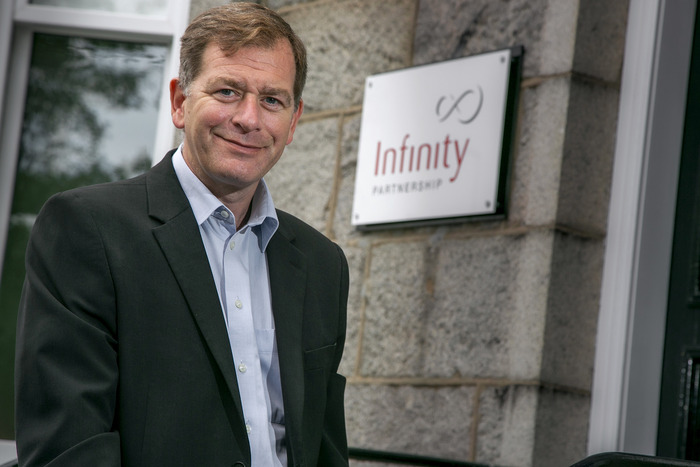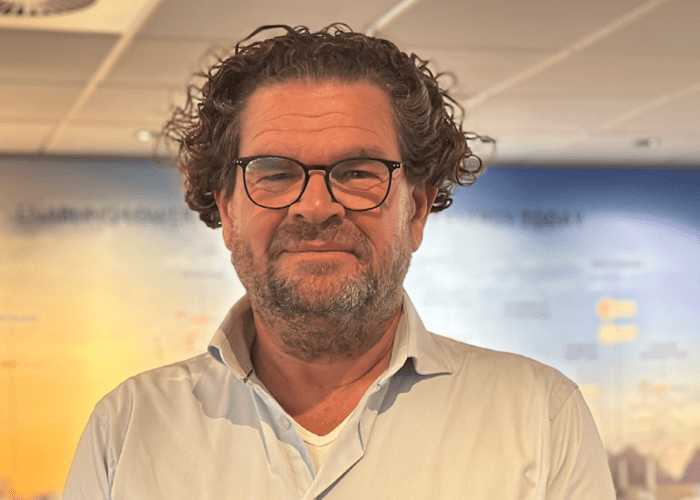A RECORD breaking £705m of venture capital (VC) was invested in some of Scotland’s most promising businesses last year, the largest amount on record, according to KPMG’s latest Venture Pulse Survey.
Despite investor activity dipping in the final quarter of last year, Scotland’s overall performance during 2022 bucked global and UK trends with investment volumes growing by 12 per cent year on year.
By comparison VC investment in the UK fell by almost a third (30%) in 2022.
Scotland’s scale ups attracted £82m of VC investment across 34 deals in Q4 2022 – 15 per cent less than was invested during the same period in 2021
Despite the sluggish finish, 2022’s investment total of £705m surpassed 2021’s total of £626m which was the previous highest level on record.
2022’s figure is more impressive given the volume of deals was down by five per cent year on year.
Standout deals during the quarter include Forres based spaceflight company Orbex securing £40.4m for its Series C funding round, led by a new investor, the Scottish National Investment Bank as it counts down to the first vertical launch from UK soil.
RoslinTech closed an £11m Series A capital raise, led by life sciences investor Novo Holdings. The investment aims to fuel the company’s next wave of growth in its mission to become the leading provider of animal cell lines to the cultivated meat sector.
Finally, Scottish makeup artist and beauty influencer Jamie Genevieve has announced a £5.5m Series A round – with £1m coming from Pembroke VCT. Glasgow-born Genevieve, who has built a following of more than three million social media followers, established VIEVE in 2020 to deliver high performance, yet accessible beauty products.
The lion’s share of Scottish deals in Q4 involved businesses in Edinburgh (16), followed by Glasgow (6). 22 of the quarter’s 34 deals were late-stage VC.
Amy Burnett, KPMG Private Enterprise Senior Manager in Scotland, said: “2022 cemented Scotland’s reputation as a place where exciting young companies are born and where investors are backing promising start-ups. Unlike the rest of the UK, Scotland posted record breaking VC volumes in 2022. While certainly not recession proof, Scotland’s breadth, and depth of scale up sectors did provide some cover during a challenging 2022.
“Globally investors have increasingly turned away from sectors that rely on consumer spend to drive growth and are instead doubling down on investments in those sectors where technology is addressing big macro trends such as health tech and ESG. With an abundance of these businesses being nurtured outside of London, it is good news for Scotland’s deep tech, clean tech, and health tech firms.”
Graeme Williams, M&A Director, KPMG UK, added: “As expected VCs did become increasingly cautious and invested funds into less risky asset classes during the final quarter of the 2022. Most investments in Q4 across Scotland were for later stage funding, suggesting that investors backed more established firms to shield from risk.
“We know there is still dry powder out there waiting to be deployed, and while we’re expecting a quiet start to 2023, the Scottish market is likely to see soft growth especially if a recession is shorter than expected.
“Soaring energy costs sparked a significant uptick in VC investment in new energy alternatives, electric vehicles, and cleantech last year. Heading into 2023, the acceleration of investment in energy alternatives is particularly exciting as such investment is critical for meeting the world’s climate change targets.”
UK picture
VC investment levels into UK businesses fell by almost a third (30%) in 2022, as global economic turmoil forced investors to take a more cautious approach, according to KPMG’s latest Venture Pulse report.
Following an incredible year of fundraising in 2021, which saw over £29.5 ($36) billion raised by UK businesses, the first half of 2022 continued to see high levels of investment with more than £14.7 ($18) billion raised. However, levels started to tail off in the latter half of the year as the ongoing conflict in Ukraine, rapidly rising interest rates, high levels of inflation, and concerns about a global recession all combined to drive VC investment down.
The year ended with £22.7 ($27.7) billion being raised by UK businesses. However, it is important to note that this is the second highest level since the report began. Over £3 ($3.7) billion was raised in the final quarter of the year, down on the £7.5 ($9.1) billion raised in the closing quarter of 2021, representing the lowest level of quarterly VC investment seen since Q220. Deal volume also fell, with the number of deals completed in 2022 (3213) down by 19% on the 3830 deals completed in 2021.
London continued to attract the lion’s share of VC investment flowing into the UK last year, with over £16.4 ($20) billion raised across 1770 deals. Meanwhile deal value into the UK regions fell by £3 billion year-on-year, with £6.2 ($7.6) billion raised over 1443 deals in 2022.
Although many sectors saw VC investment fall, the UK saw several pockets of strong activity, including sustainability, gaming, and health and biotech. A number of fintech subsectors also continued to attract VC investors and corporates — including regtech, cybersecurity, and B2B solutions — while others, like BNPL (buy now pay later), struggled. With BNPL regulations expected in the UK during 2023, the BNPL space could see smaller startups fail or be acquired by larger players over the next few quarters. Stand out deals of the quarter included the £200 million secured by London-based FinTech Market Financial Solutions and the £59.7 million raise by Bristol-based cyber-security firm Immersive Labs.
Commenting on the VC landscape for the UK, Warren Middleton lead partner for KPMG’s Emerging Giant Centre of Excellence said :
“On the back of an extraordinary year of post-Covid fundraising in 2021, UK businesses got off to a strong start to 2022, however investor sentiment was subdued in the final half of the year, driven both by global macroeconomic factors and by the uncertain domestic political situation experienced from the summer onwards.
“Despite the challenges, it was still a very good performance by our UK innovators as the past three years have seen healthy tallies for capital commitments to venture coffers. With over £22 billion committed, fund managers gathered plenty of capital commitments to fuel dealmaking in the years to come.
“Dry powder is still being deployed — what’s changing is the way it’s being invested. There is some sense that IPO activity could make a broad return in the second half of the year, with some pockets of activity even before that. ESG businesses could be particularly compelling; while we might not see IPOs in the space right away, we could start to see companies beginning the work required to become IPO ready.”





